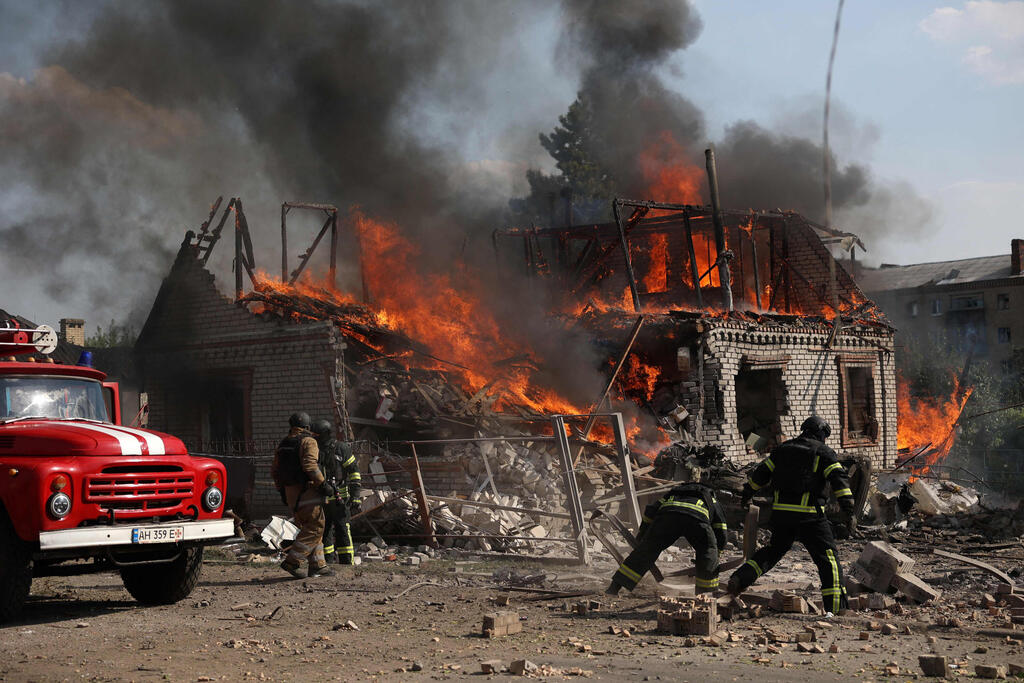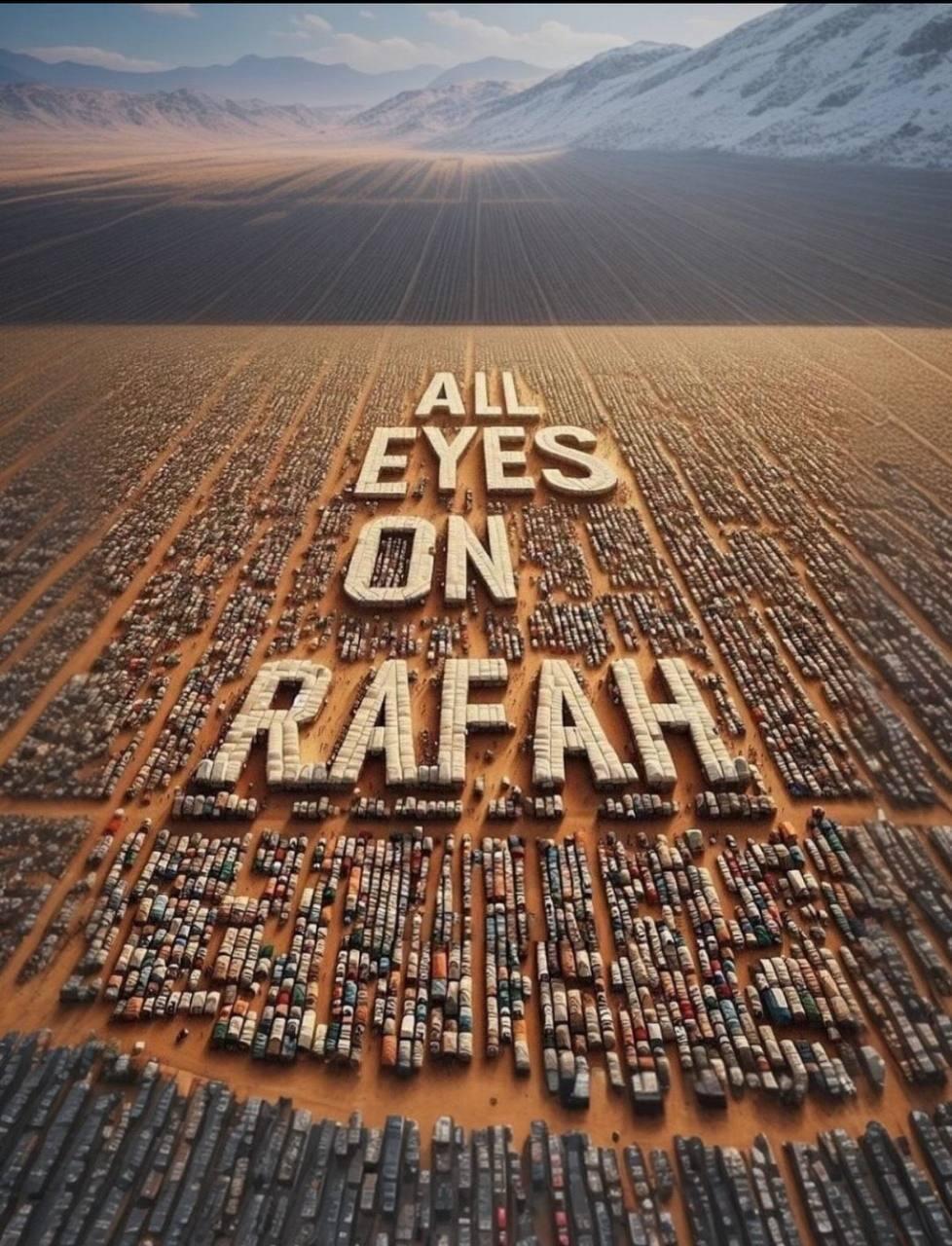Getting your Trinity Audio player ready...
Last week, the Okhmatdyt Children’s Hospital in Ukraine was targeted by a Russian missile attack. The children’s hospital, which is Ukraine’s largest, sustained significant damage, and two people were killed. The attack was just one element of a deadly Russian strike that killed at least 38 and injured more than 100.
Despite the devastating nature of the hospital attack, the international public reaction was relatively muted. Social media campaigns against Russian aggression in Ukraine, such as #StandWithUkraine and #StopRussianAggression, have seen widespread engagement, but no specific campaign was created to address the attack on a children’s hospital.
2 View gallery


Rescuers put out a fire caused by a Russian missile attack in Kostyatynivka town, Donetsk region, on July 21, 2024.
( (Anatolii Stepanov/AFP))
This muted response stands in stark contrast to online activism regarding the Israel-Hamas war. In May, an AI-generated image of tents arranged to spell “All Eyes on Rafah" went viral, with over 44 million shares on Instagram and nearly 28 million on X, the platform formerly known as Twitter. The post was inspired by the Israeli military’s action in the southern Gazan city of Rafah, where hundreds of thousands of Palestinian civilians were then sheltering.
Throughout the past 10 months of war between Israel and Gaza, 10.7 million posts have been made on Instagram with the hashtag #FreePalestine. In comparison, only 1.9 million posts were made with the hashtag #StandWithUkraine during the two years of war in Ukraine.
Ukrainian media expert and political analyst Alexey Kovzhun explained that contrast by noting that the public has gotten used to images of Ukrainian suffering.
“Ukraine is gradually being perceived by our allies similarly to Syria,” he said. “People are getting used to it: ‘Ukraine was shelled by rockets. Another Russian atrocity, nothing special.’”
He said that the decreasing public outrage over Russian war crimes is a predictable phenomenon.
“It’s human nature. As we know, the death of one person is a tragedy, but the death of a million is a statistic,” he said.
Kovzhun also accused Russia of funding and training Hamas members and funding pro-Palestinian protests.
“When we see such a coordinated chorus, flags of the same size, and professionally printed posters, we understand that this is a simulation of an organic, natural protest. And I am deeply convinced that behind these European, American, and ostensibly pro-Palestinian demonstrations are Russian funds,” he said.
2 View gallery


The 'All Eyes on Rafah' campaign went viral, while the public has gotten used to images of Ukrainian suffering
According to political scientist Leonid Goldenberg, the different narratives regarding Gaza and Ukraine can be traced back to the Cold War. Leftists understand Ukraine and Israel both to be “proxies of American hegemony,” he said.
The Russian narrative paints the West as hypocritical for allowing Israel to bomb Gaza but sanctioning Russia for merely “saving its own people,” he said, noting that discourse of this sort “fits well into the left’s anticolonial agenda.”
“Dislike for Israel in this narrative has existed for many years,” Goldenberg continued. “The Western audience learned about Ukraine only recently, unlike the well-known Israeli-Palestinian conflict. When the war in Israel occurred, Russia, along with its allies – primarily China, Iran, and Qatar – began using already established anti-Israel narratives.”
Russian journalist and historian Maxim Kuzakhmetov also described a double standard between responses to the war in Ukraine and the war in Gaza. He condemned the international indifference toward the hostages still held in Gaza and criticized the structure of the UN, which allows Russia a permanent seat on the Security Council.
“It was an utterly insane decision to transfer all the powers of the Soviet Union to Russia,” Kuzakhmetov said. “It’s absurd. All 15 former Soviet republics should have had to join the UN anew, but Russia became the successor state, and this legacy, this sad history, continues to this day.”
Because of Russia’s veto power, the UN has little influence, he explained.
“Russia is an obvious terrorist state that befriends Iran, Hamas, the Taliban, and North Korea,” Kuzakhmetov said. “In contrast, the helpless Western world is still trying to negotiate with someone while Ukrainians are paying the price.”
Kovzhun also criticized the UN for its decision to meet with the Taliban even after Taliban representatives demanded that no Afghan women be allowed to participate in the meeting.
Goldenberg said that some UN organizations have been implicated in financing terrorism and that the organization is often biased in its assessment of humanitarian crises.
He expressed concern about maintaining the UN’s legitimacy.
"When the majority of countries in the UN are neither democratic nor liberal but have the same voting rights as everyone else, how can we protect the integrity of democracy and liberalism?” he asked.

